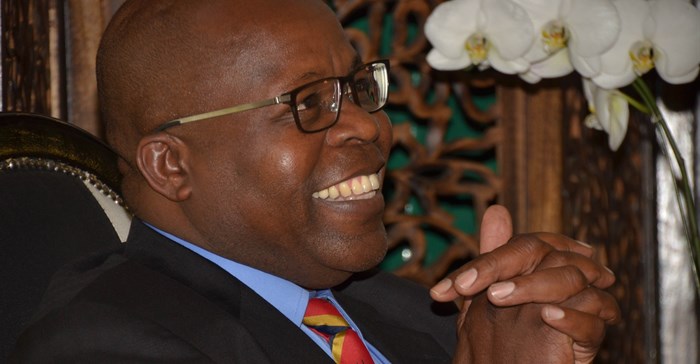
Top stories





ESG & SustainabilitySouth Africa’s carbon tax should stay: climate scientists explain why
Britta Rennkamp et al. 39 minutes

More news




















Who is he?
He is a man who is passionate about mining, a man whose excitement is evident when he speaks about the challenges of digging, of blasting, of turning the three grams a tonne of platinum group metals begrudgingly yielded up by the hard igneous rock of the Bushveld Complex into metals that can be turned into wealth, turned into jewellery, turned into catalytic convertors that can save cities from choking in the fumes of the increasing demand for automobiles.
Magara gives a straightforward answer, simple but profound: “Show up, be there with passion and purpose. If you aren’t passionate about what you do, find another job, go somewhere else.”
He doesn’t dissolve into clichés about only having one life and the answer is not a slick, well-used refrain. He believes in what he does and seeks out opportunities to practice his profession – he’s a miner who wears his hard hat with honour.

In July 2013, when all of the platinum industry and most of South Africa were still reeling in horror after the events of August 2012, which left 44 people dead in Marikana, Magara walked away from the familiarity of an executive role at Anglo and joined Lonmin as its CEO.
He’s been asked why many times, not least by his former colleagues at Anglo, the company that had sponsored his studies and where he had grown from new recruit to CEO of Anglo Coal, putting in some time in the platinum mines along the way. He was driven to take it on, he says, because he felt there was a purpose.
Magara took on a company where everyone from the unionised workers, those who had wanted to strike and those who didn’t, to executives, management and shareholders had suffered a deep sense of loss.
During his first week in the job, he skipped the Melrose Arch head office with its easy access to trendy coffee shops and restaurants, and headed to the shafts. That week he greeted around 22,000 of his new employees as they started shifts or came up from underground. Introducing himself as one of them.
The workers mocked him, he says, saying they had never had a CEO who knew about going underground. He told them he would be back to show them…
In his second week at Lonmin, Ben kept the shareholders and the financiers waiting a bit longer while he travelled to the Eastern Cape to meet the widows and the relatives of those who had died during that fateful week in August 2012.
He set in motion a process of offering bereaved families the opportunity for one member to be given employment, so that no family would be left without a breadwinner as well as a renewed focus on their children’s education. All of the child dependents are now in school, even those who hadn’t been to school before the events. And he has led a process to fundamentally reassess the company’s investment in employees and communities.
One of the first appointments he made was that of an executive vice-president in charge of communication and stakeholder relationships. This has previously been a human resources function. Even in these worst of times, that team has grown, supporting him in holding open the lines of communication and extending those to line managers and other executives.
In week three at Lonmin, he went back to the shafts to start a weekly tradition. He went underground with the team who had mocked him, to show them he understood what it meant to be a rock driller. And, in the uncomfortable confines of a one-metre platinum stope, he spoke to them about what it took to turn the meagre three grams a tonne of platinum they extracted into a saleable mineral – helping them to understand why their demands for a R12,500 minimum wage were always going to be difficult to achieve.
Ben’s a big man, so a day underground alongside them, experiencing the discomfort of moving in those confined spaces - with a hard hat on his head, knees protected by the caps that are necessary when crawling along these confined stopes - must elicit the kind of mutual respect needed to work with and help heal this deeply affected workforce. But, his face lights up and his energy is evident when he talks about his regular return visits to the mine shafts – once a week when he is in the country. They greet him with smiles when he comes, he says.
Read the second installment of Ben Magara's take on the platinum industry on Friday, 17 June.